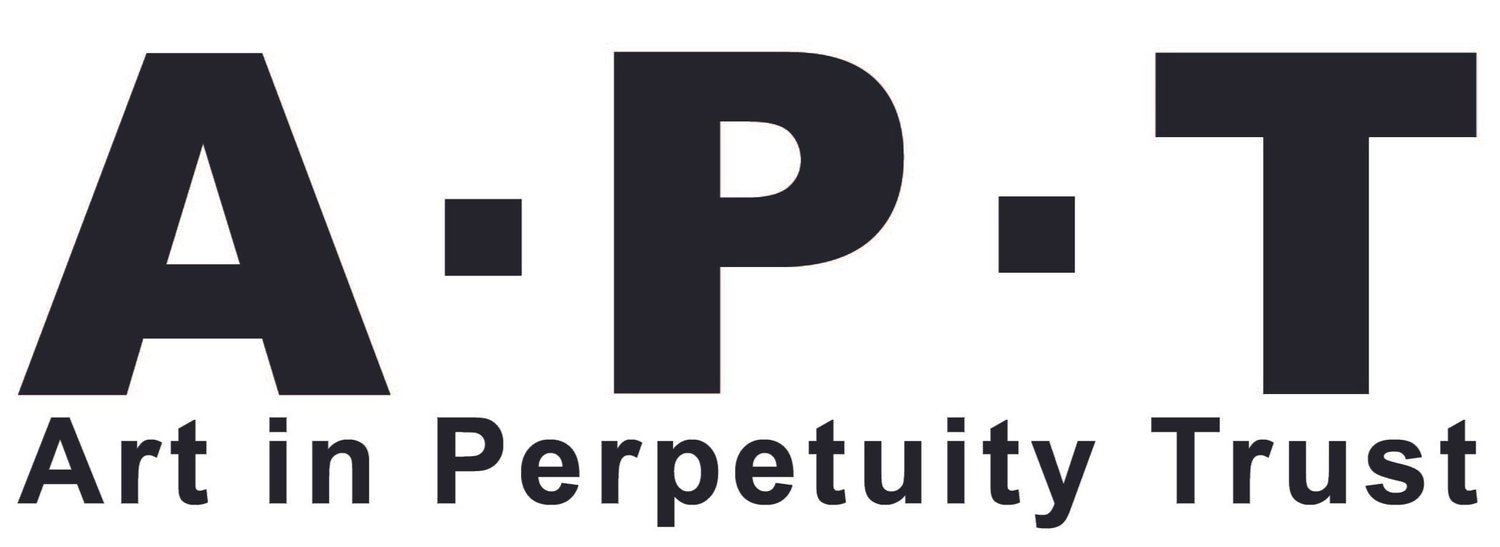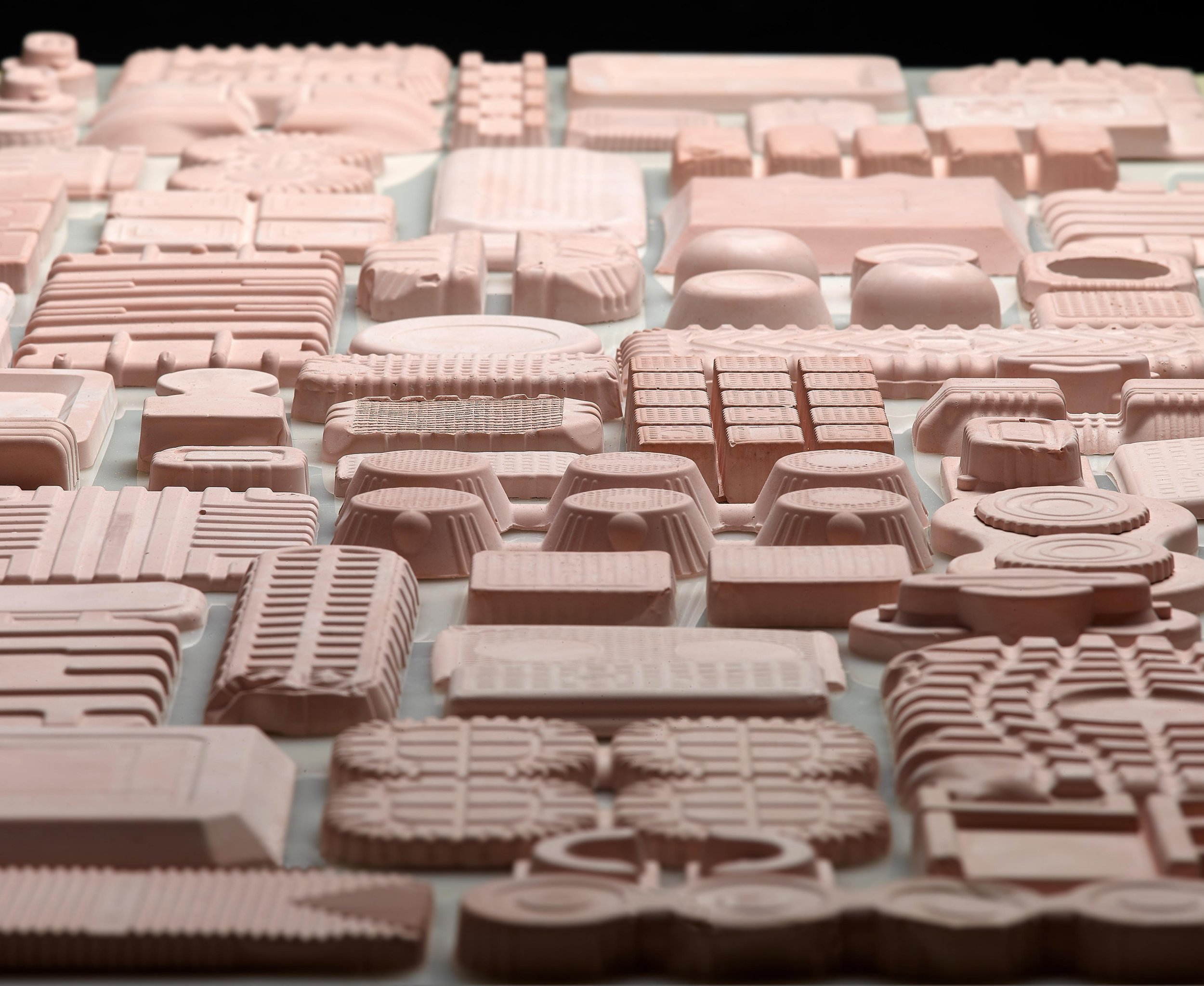365 Days of Plastic by Henny Burnett
Photo Credit: Martin Urmson
Doublethink
Exploring paradox and perception
2 - 12 June 2022
Tue to Sun, 12-5pm
Private View :
Thursday 2 June 6-8pm
Artist panel discussion:
Saturday 11 June at 2pm with Artist and Curator Matthew Swift
Contributing artists: Henny Burnett, David Carruthers, David Dixon, Alex Hanna, Susan Francis, Prudence Maltby
Doublethink
Introduction by Prudence Maltby
With each generation finding new materials and media, the artwork as a record evolves through the act of sourcing and documenting. These artists look at ways in which materials, processes, and subject choices inhibit and disrupt social standards, emerging as a corrupt mix - often with negating notions. As reference to Orwellian language, Doublethink explores the means by which our thinking – as a society as well as individuals – seems natural, when it is not always our own. The ability to react and make sense of the world around us using a plethora of expressions is at the core of this collaboration. We think, as artists, that we imagine art as having the ability to expose the forces that shape our world so profoundly, when maybe art, in turn, could well be just another product of this invisible programme.
In its complexity, the brain has no option but to double over, to deny the rip between a conscious acceptance of reality and an unconscious rebuttal of reality, and then to blend them into one contradictory state of mind in which everything is deemed believable, and nothing is questioned. Doublethink. It’s the dichotomy of acceptance and denial that threads through this collection of works.
Invited quote by Chantal Powell (PhD: Social Psychology), Artist and Founder of Hogchester Arts
“The act of Doublethink appears to be deceitfully tampering with reality - simultaneously holding two completely contradictory beliefs up as truth. The Orwellian phrase was used to describe a process of societal indoctrination, but it is interesting to consider the term in relation to the “principle of opposites” within the psyche.
Energy (libido) is created from psychic opposition and our ability to accept and hold a balance between polar opposites instead of forcing one into repression. The goal is a shared, chimeric existence between light and dark, matter and spirit, love, and loathing, thinking, and feeling. Working within this landscape of inner duality and paradox is a disruptive and confronting experience. However, when an artist is able to embrace and flex around these opposing forces, they harness a psychic energy that manifests the hybridity of the unconscious mind.”
website: chantalpowell.com
Instagram: @chantallpowell
Artist Introductions
HENNY BURNETT: ‘Doublethink is the act of simultaneously accepting two mutually contradictory beliefs as correct.’ My work involves contradictions: domestic and industrial, beautiful and ugly, useful and useless, temporary and permanent. Touch-me-not is drawn from personal experience: of seborrheic keratosis, and premature ageing of skin. Once-touchable skin became untouchable, rough and unsightly. Yet in the final diptych touch is encouraged: the thermochromic ink responds to the warmth of the hand, leaving a momentary imprint. 365 Days of Plastic is a year’s plastic food packaging from one household. Different scales and textures create a panoramic view of containers, both beautiful and horrific. Dental plaster refers obliquely to food consumption, asking questions about our disposable society and dependency on plastics. Both were made during the pandemic, so function as markers of time, and containment.
Henny Burnett is a mixed media artist who lives and works in Bristol and London. She attended Byam Shaw and Edinburgh Colleges of Art and has exhibited nationally and internationally, undertaking residencies in Italy and Britain. She has won awards from Juliet Gomperts Trust, The British Council, ACE and travel grants to Canada and USA. Her most recent commission Touch-me-not was awarded by Procreate Project funded by ACE and 365 Days of Plastic was a selected finalist piece in the Aesthetica Art Prize.
website: axisweb.org/p/hennyburnett/
Instagram @hennyburnett
ALEX HANNA: In these paintings I have used found objects and materials gleaned from my own living space. They have become the focus of analysis through a meditation with their properties of surface and form. Every day and disposable objects are frequently the subject of my visual research and are often arranged and studied within a shallow space. Objects are placed near a light source which offers either natural or unnatural light. The aim is to produce a pure and reduced image which examines visual illusions and the materialistic qualities of paint. Paintings are attempting to study the interactions of tones and colours and how these can combine to create compositions which imply an assumed reality.
Alex Hanna has recently exhibited: Small is beautiful, Hansard Gallery London; Vitalistic Fantasies, Contemporary British Painting, The Cello Factory, London; Plausible Objects/Difficult Things, Online CBP group exhibition; Thing Worlds, Art Spot Korin Gallery, Kyoto; CAS Housebound Online, and Paradoxes CBP group exhibition Quay Arts, Isle of Wight.
His paintings explore visual illusions via the depiction of arrangements of objects, surfaces and materials through the interpretation of observed data.
website: alex-hanna.co.uk
Instagram: hanna9146
DAVID CARRUTHERS: Every day I walk. Looking. Stopping. Recording. From this gentle ritual I filter the landscape and the complex dualities surrounding us. The resulting art works have become digital decodings of a personal analogue perspective, they employ various time signatures and examine events using a sense of deceleration. These pieces illustrate small breaths taken through a blizzard of events and locations from the previous two years, reaching into a toolbox that helps me to regain balance and therefore remain upright. Luminous, quiet mirrors. To paraphrase Orwell, the appearance of solidity to pure wind. I find exhibiting quite difficult, the equilibrium between public and personal is sometimes hard to reconcile but I realise that in the gallery we get to exchange experience and walk away with fresh connections. Balances and checks.
David Carruthers is originally from Cumbria where he trained and worked as an engineering draughtsman. In 1980 he visited an exhibition by Lazlo Moholy Nagy, whose thinking prompted a profound change of direction. He subsequently took a BA Fine Art (Sheffield), an MA Fine Art (Chelsea) and was awarded a post-graduate Fellowship at GLOSCAT.
He is an artist who uses a wide range of media and methods including photography, moving image, sound, sculpture, installation, and augmented reality. His work examines amplification and deceleration in our engagement with landscape and environment.
website: davidcarruthers.art
Instagram: @david_carruthers_ _
SUSAN FRANCIS: We exist in a constant state of Doublethink, whiplashing back and forward from experience to memory, smashing together the past with the present, creating new worlds from old. Our lived interiors reveal an endless rehash of colours, forms, and materials, with imagery from nature infiltrating our homes in unnatural ways, harvested and cut free from meaningful habitat, where we can control and supress. This body of work emerged over lockdown, inspired by a 1960s book on flower arranging; strange, surreal and futuristic stagings, utopian dioramas where a disembodied hand arranges, controls and reimagines the natural world for a better one perhaps. Our anthropocentric attempts to bring order to chaos are constantly usurped, nevertheless we repeat them, existing in the Doublethink.
Susan Francis, born in Belfast, currently lives and works in Wiltshire. With a record of national and international exhibitions, she has also undertaken residencies at the Bemis Center for Contemporary Art in Nebraska, USA, and The Center of Polish Sculpture in Oronsko, Poland. With work in private and public collections, including The Arts Council Collection of Northern Ireland, Susan Francis has also won a number of awards including Juliet Gomperts Trust, the British Council and Arts Council England. She has recently completed a Masters degree in Theology, Imagination and Culture which continues to inform her work.
website: susanfrancis.com
Instagram/Twitter: @susanefrancis
DAVID DIXON: ‘all that exists for knowledge, and therefore this whole world, is only object in relation to subject, perception of a perceiver, in a word, idea.’Arthur Schopenhauer 1818
Doublethink could be seen as a two-world view of our thought, offering ontologically distinct aspects of engagement. It could also be seen as a two-aspect view of our thought, offering complementary ways of considering an object. This is appropriate with modern theories concerning the reciprocal nature of quantum mechanics. Upon examination, binaries collapse into probabilities, and we find that the world we know is contingent upon our apparatus for sensing it.
David Dixon is an installation artist, based in South West England, and has been the director of the artist-led organisation Chapel Arts Studios (CAS) since its launch in 2009. He sat on the ACE SW Regional Council from 2017-2020, and is currently on the board of disabled-arts organisation Unlimited. Recent exhibitions include The Laboratory of Dissent at Spudworks in Sway and Inside/Outside at The Winchester Gallery, Winchester School of Art.
website: daviddixon.co.uk
Twitter: @chapelartists
PRUDENCE MALTBY: Orwell suggested that – ‘if you want to keep a secret, you must also hide it from yourself.’ Feeling very much the author I have in some instances scribbled over areas, evoking layers of chaos and fragmentation; distorting what is real. This necessary mark making veiled in raw piment dust serves to conceal my subject matter and therefore provide a refuge and obligatory punctuation. With a focus on the manifestations of truth when reality has little meaning… I flirt with disguise and cover up; hide and seek. These works are very private and yet there is always the anomaly of wanting them to be seen. Again, and again, they oscillate between exclusion and inclusion, between here and there, then, and now.
Prudence Maltby, born in Sussex, emigrated to Rhodesia (Zimbabwe) with her family when she was a small child. She returned to the UK in the 90s having spent 35 years in Africa. Prudence divides her time between drawing, painting and curating exhibitions. She also co-ordinates visual arts projects and most recently delivered a four year, award winning, international project commemorating WW1, which culminated in Montreal, Canada. She has work in private and public collections and over the years has gained several awards from Zimbabwe and England.
website: prudencemaltby.com
Instagram: @prudencemaltby

